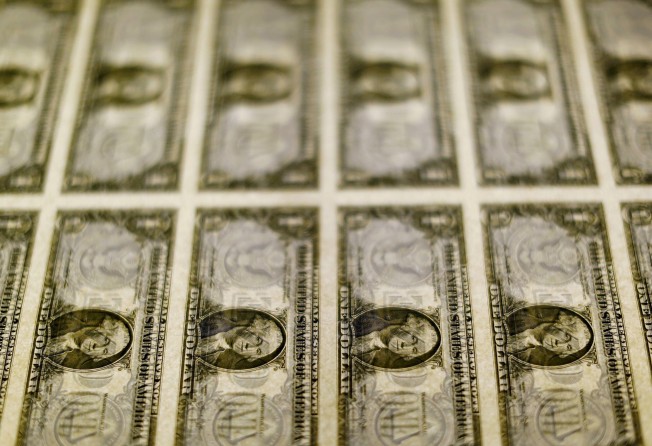Debt-driven spending will not restore health of the global economy
- The last thing a world seeking to recover from the ravages of Covid-19 needs are more financial bubbles when increased trade and new technologies are the real answer

Huh, the magic of modern American government finance! The US Treasury is set to borrow a record-breaking US$2.99 trillion in debt this quarter to help finance a series of stimulus packages to offset the economic damages inflicted by Covid-19.
The amount may be staggering, but it looks like the United States government will have little trouble unloading the new debt on a market hungry for a safe haven at a time of crisis.
Moreover, there is always the US Federal Reserve, which has promised to buy unlimited quantities of Treasuries. What the left hand offers, the right hand will take. This is one main reason Treasury yields have gone up very little – as bond yields move inversely to prices.
When interest payments are so low, you can hardly blame the US government for borrowing like there is no tomorrow. For example, the 10-year Treasury hovers around 0.71 per cent while the 30-year is about 1.42 per cent.
In the coming auctions, the Treasury Department will also issue 20-year bonds, not sold since the late 1980s. It has been rightly called America’s exorbitant privilege. With the US dollar as the world’s main reserve currency, Washington has always been able to borrow cheaply and print money in all sorts of ingenious ways without risking too much inflation.
This does not mean assuming massive debt has no consequences. During the last financial crisis, we saw how the world’s major central banks, led by the US Fed, flooded the markets with liquidity and created massive bubbles in many places around the world. Hong Kong’s property market was one example we are all familiar with.
Most likely, the latest bout of monetary easing and fiscal stimulus, in the US and elsewhere, will trigger another round of financial bubbles. We can already see how major stock markets such as the S&P 500 have bounced back after their historic plunges in March.
Whether intentional or not, such massive economic easing may be necessary, but it tends to benefit those with the most assets while penalising the poor, the savers and those without much assets. Inflation at least hurts everyone in a more or less egalitarian way.
Asset inflation makes the rich richer and the poor poorer. This can only exacerbate already shocking inequalities and produce greater social instability. We are all too familiar with such disruptive social phenomena in Hong Kong, especially since last summer.
In the long run, the health of the global economy can only be restored through increasing trade, and the development of new technologies to enhance productivity.
But the world is entering an uncertain period as the US is threatening decoupling from China and globalisation is in retreat. The current pandemic will eventually end. But the terrible effects of massive debt-driven spending and asset inflation may be with us for a long time.
Help us understand what you are interested in so that we can improve SCMP and provide a better experience for you. We would like to invite you to take this five-minute survey on how you engage with SCMP and the news.
